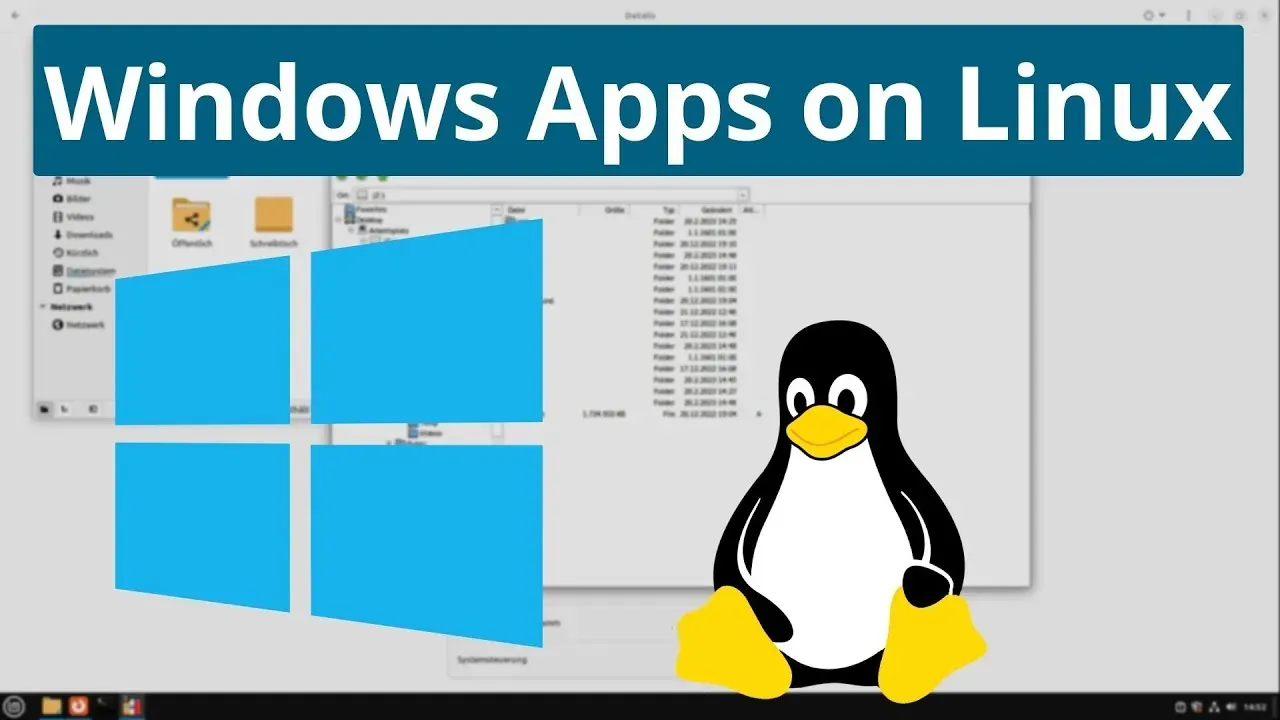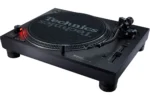Running Windows Apps on Linux has become increasingly accessible, thanks to innovative tools like Wine, Bottles, and Valve’s Proton. These applications allow users to seamlessly integrate Windows applications into their Linux environment, offering a solution for those who rely on specific software unavailable on native Linux. Wine acts as a compatibility layer, converting Windows system calls to Linux-friendly commands, while Bottles provides a user-friendly interface to manage these Wine environments effortlessly. For gamers, Valve’s Proton takes the lead, enhancing Windows games’ performance on Linux through advanced DirectX-to-Vulkan translation. With these tools, the world of Linux gaming and productivity expands, empowering users to run their favorite Windows applications without the hassle of dual-booting or virtualization.
Exploring the ability to run Windows software on Linux platforms opens up a realm of possibilities for users seeking alternative solutions. Compatibility layers like Wine enable the execution of Windows programs directly on Linux, while tools such as Bottles streamline the management of these environments. Gamers benefit from Valve’s Proton, which simplifies the process of playing Windows games on Linux systems. This blend of technologies not only enhances the overall Linux experience but also allows for a more diverse software ecosystem. As Linux continues to grow in popularity, understanding how to leverage these tools becomes essential for maximizing productivity and enjoyment.
Understanding Wine: The Compatibility Layer for Linux
Wine is a powerful compatibility layer that enables users to run Windows applications on Linux systems without the need for a full Windows installation. By translating Windows system calls into Linux-friendly commands, Wine allows a wide variety of software, from productivity tools to games, to function seamlessly. Since its inception in 1993, Wine has garnered support from a robust community, continuously evolving to enhance compatibility and performance across various Windows applications.
One of the key benefits of using Wine is its open-source nature, which fosters collaboration among developers and users alike. This community-driven approach ensures that Wine remains up-to-date with the latest advancements in both Windows and Linux environments. While the lack of a graphical interface may deter some users, those who are familiar with terminal commands can leverage Wine’s capabilities to run numerous applications effectively. For those looking for a more user-friendly experience, combining Wine with tools like Bottles can significantly simplify the process.
Bottles: Simplifying Wine Management
Bottles serves as an excellent companion to Wine, providing a graphical interface that organizes Wine environments into distinct “bottles.” Each bottle is self-contained, allowing users to customize settings and configurations for specific applications without the risk of conflicts. This feature is particularly useful for managing multiple applications that may require different Wine versions or settings, streamlining the user experience for those who may not be comfortable navigating the terminal.
Another significant advantage of using Bottles is its support for various Wine versions, enabling users to select the most compatible version for their specific applications. This flexibility ensures that even applications with unique requirements can be run without hassle. As the Linux gaming community continues to grow, Bottles becomes an increasingly valuable tool for gamers wanting to run Windows games, making the transition to Linux smoother and more accessible.
Steam Proton: The Gaming Powerhouse
Valve’s Proton is a game-changer for Linux gamers, as it simplifies the process of running Windows games on the Linux platform. By integrating Wine with a DirectX-to-Vulkan translation layer, Proton significantly enhances the performance and compatibility of over 16,000 Windows games available on Steam. This seamless integration allows users to launch and play their favorite Windows titles with minimal configuration, making gaming on Linux an attractive option for many.
While Proton excels in gaming, it is important to note that it is less suitable for general-purpose applications. For users primarily interested in gaming, Proton offers a straightforward solution, allowing for easy game launches and updates directly through the Steam client. However, if you need to run non-gaming applications, it is advisable to consider Wine or Bottles, as these tools offer more versatility for a broader range of Windows applications.
Choosing Between Wine, Bottles, and Proton
When determining which tool to use for running Windows applications on Linux, it is essential to consider your specific needs. Wine provides broad software compatibility and is ideal for users comfortable with terminal commands, making it suitable for various applications, including older software and productivity tools. However, if you prefer a more user-friendly approach, Bottles can enhance your Wine experience with its graphical interface.
For gamers, the choice is clear: Proton is designed specifically for running Windows games on Linux, offering a streamlined experience that minimizes the need for manual configuration. With regular updates and a vast library of compatible games, Proton stands out as the best option for gaming enthusiasts. Ultimately, the right tool will depend on your usage scenario, whether it be for gaming, productivity, or managing a diverse range of applications.
The Role of Wine in Linux Gaming
Wine’s contribution to Linux gaming cannot be overstated. By allowing users to run Windows games on Linux, Wine has opened up a world of gaming possibilities for those who prefer open-source environments. As Linux gaming evolves, Wine remains a critical component, supporting a wide range of titles and providing gamers with the flexibility to enjoy their favorite games without being restricted by the Windows operating system.
Moreover, Wine’s compatibility with various gaming engines and software ensures that many newer games can also run smoothly on Linux. The ongoing development and support from the community mean that the list of playable games is continually expanding. As more gamers turn to Linux as their primary platform, Wine’s role in facilitating this transition is vital, making it an essential tool for running Windows applications and games.
Exploring the Benefits of Using Bottles with Wine
Using Bottles in conjunction with Wine significantly enhances the user experience when managing Windows applications on Linux. By providing a user-friendly interface, Bottles simplifies the process of creating and managing separate Wine environments, which is particularly beneficial for users unfamiliar with command-line operations. This ease of use encourages more users to explore the capabilities of Wine, ultimately expanding the Linux application ecosystem.
Additionally, Bottles allows users to experiment with different Wine configurations for each application. This flexibility means that users can easily switch between Wine versions or settings to optimize performance for specific software, ensuring that each application runs as intended. As a result, Bottles not only streamlines the user experience but also empowers users to customize their setups according to their personal preferences and requirements.
Integrating Proton for an Enhanced Gaming Experience
Integrating Proton into your gaming setup on Linux can dramatically improve your experience with Windows games. Proton’s compatibility layer ensures that games designed for Windows run smoothly on Linux, with minimal fuss and configuration. This integration allows users to enjoy a vast library of games without the need for dual-booting or complex setups, making gaming on Linux more accessible than ever.
Moreover, Proton is regularly updated, which means that users benefit from ongoing improvements and compatibility enhancements for new releases. The seamless integration with Steam also allows for easy access to community support and resources, further enriching the gaming experience. With Proton, users can focus on enjoying their games rather than troubleshooting technical issues, making it an excellent choice for both casual and hardcore gamers.
Maximizing Your Linux Setup with Wine and Proton
Maximizing your Linux setup involves strategically utilizing both Wine and Proton to achieve the best results for your specific needs. For general-purpose applications and older software, Wine provides a robust solution that can handle a wide array of Windows programs. By carefully configuring Wine, users can run productivity tools and other non-gaming applications effectively.
On the other hand, when it comes to gaming, Proton should be your go-to choice. Its specialization in running Windows games on Linux, combined with its integration into the Steam ecosystem, makes it a powerful tool for gamers. By utilizing both Wine for applications and Proton for games, users can unlock the full potential of their Linux systems, enjoying a diverse range of software and gaming experiences.
Future of Windows Applications on Linux
The future of running Windows applications on Linux looks promising, thanks to the continuous development of tools like Wine, Bottles, and Proton. As more users migrate to Linux for its open-source advantages, the demand for reliable solutions to run Windows software will grow. The ongoing collaboration between the Linux community and companies like Valve will likely lead to even greater improvements in compatibility and performance.
Additionally, as developers increasingly recognize the importance of cross-platform compatibility, we may see a rise in native Linux applications that reduce dependency on Wine and Proton. This shift will not only enhance the user experience but also help solidify Linux as a viable alternative to Windows for a broader audience. The integration of these compatibility tools will play a crucial role in shaping the landscape of software availability on Linux moving forward.
Frequently Asked Questions
What is the best way to run Windows applications on Linux?
The best way to run Windows applications on Linux is by using Wine, Bottles, or Valve’s Proton. Wine acts as a compatibility layer that translates Windows system calls, while Bottles provides a user-friendly interface for managing Wine environments. Proton, built by Valve, enhances gaming performance for Windows games on Linux through Steam.
How does Wine help in running Windows apps on Linux?
Wine helps in running Windows apps on Linux by translating Windows system calls into Linux-friendly commands. This allows many Windows programs to run seamlessly without the need for a full emulator, making it a popular choice for users looking to use Windows applications on Linux.
What advantages does Bottles provide for running Windows applications on Linux?
Bottles enhances the experience of running Windows applications on Linux by organizing Wine environments into separate ‘bottles’. Each bottle has its own settings, which prevents conflicts between applications. Its graphical interface simplifies the configuration and management of Wine, making it easier for users unfamiliar with terminal commands.
Is Valve’s Proton a good option for running Windows games on Linux?
Yes, Valve’s Proton is an excellent option for running Windows games on Linux. It integrates directly with Steam and uses Wine along with DirectX-to-Vulkan translation to improve compatibility and performance for Windows games, making it a preferred choice for gamers.
Can I run productivity software on Linux using Wine?
Yes, you can run productivity software on Linux using Wine. While it may require some manual configuration, Wine supports a variety of general-purpose applications, making it suitable for users who need to run older software or Windows-specific productivity tools.
What should I choose between Wine, Bottles, and Proton for running Windows applications on Linux?
If you want maximum compatibility for various Windows applications, use Wine. If you prefer a graphical interface to simplify management, Bottles is the better choice. For gaming, Valve’s Proton is the most efficient option, as it is optimized for running Windows games through Steam.
Are there other alternatives to run Windows applications on Linux besides Wine, Bottles, and Proton?
Yes, besides Wine, Bottles, and Proton, there are other alternatives like PlayOnLinux for easier management of Wine, or using virtual machines like VirtualBox or VMware to run a full Windows environment on Linux.
How does Proton compare to Wine for running Windows games on Linux?
Proton is specifically designed for gaming and integrates seamlessly with Steam, making it easier to launch and manage games. While Wine can run games, Proton offers optimized performance and compatibility for a larger library of Windows games, making it the preferred choice for gamers.
Can I run non-gaming Windows applications using Proton on Linux?
Proton is primarily designed for gaming, so it may not be the best choice for running non-gaming Windows applications. For those, using Wine or Bottles would be more effective as they cater to a wider range of software beyond gaming.
What is the role of the Linux community in the development of Wine?
The Linux community plays a significant role in the development of Wine by contributing to its continuous improvement and support. Being open-source, Wine benefits from the collective efforts of developers and users, leading to better compatibility with Windows applications over time.
| Tool | Description | Best For |
|---|---|---|
| Wine | A compatibility layer that translates Windows system calls to Linux, allowing Windows apps to run without an emulator. | General applications, productivity software, older games. |
| Bottles | A graphical tool that uses Wine to organize separate environments called bottles, making management easier. | Users who prefer a user-friendly interface for managing Wine settings. |
| Proton | Valve’s compatibility layer for Steam that enhances Windows gaming performance on Linux. | Gamers looking to play Windows games on Steam with minimal configuration. |
Summary
Running Windows Apps on Linux is easier than ever thanks to tools like Wine, Bottles, and Proton. Each of these applications serves a distinct purpose, catering to different user needs—whether it’s for general applications, simplified management through a graphical interface, or seamless gaming experiences. With the continuous evolution of these tools, Linux users can enjoy a broader range of Windows software, making the transition to Linux more accessible than ever.








